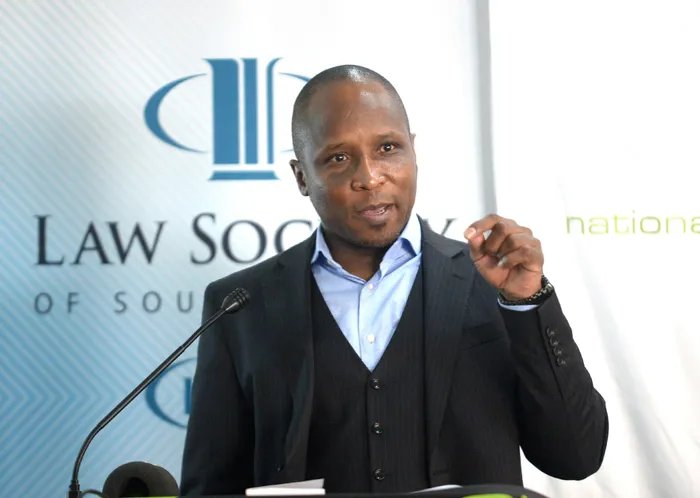RAF Situation: Issues of leadership, accountability, and justice
Opinion

Collins Letsoalo, was placed on special leave on May 27, 2025, and formally suspended a week later.
Image: Thobile Mathonsi/Independent Newspapers
EMBATTLED Road Accident Fund (RAF) chief executive, Collins Letsoalo, was placed on special leave on May 27, 2025, and formally suspended a week later.
Initially, the issue involved allegations of financial irregularities, including a R79 million lease under investigation by the Special Investigating Unit (SIU).
This evolved into charges of insubordination after he did not appear before Parliament’s Standing Committee on Public Accounts (Scopa).
Letsoalo claims that his removal is due to his disrupting entrenched practices within the organisation. He has accused legal elites, some now judges, of misusing RAF resources. He has requested an independent commission of inquiry and cited threats to his safety and alleged bias within the judiciary.
This situation highlights a significant accountability issue within the institution, marked by inconsistent leadership decisions. Notably, the board had resolved to renew Letsoalo’s contract, but then suspended him shortly after. This indicates governance challenges.
Effective crisis management requires consistent messaging, transparency, and a unified response. The RAF board has shifted its stance from financial misconduct allegations to claims of insubordination. Meanwhile, Letsoalo has publicly shared his side, resulting in ongoing media coverage.
This has led to a decline in trust. When institutions fail to manage their narratives effectively, confusion and reputational damage can ensue.
The SIU investigation into the R79m lease raises serious concerns about RAF’s internal controls. The charge of insubordination against Letsoalo for not appearing before Parliament suggests potential issues with how political accountability is managed within the institution. Public institutions should operate based on principles rather than personal discretion.
A significant aspect of Letsoalo’s defence involves questioning judicial impartiality. Accusations against judges raise broader issues beyond individual HR matters. Perceptions of judicial bias can undermine public confidence in the courts. Letsoalo has called for a non-judicial inquiry into RAF-related rulings, highlighting concerns about public trust in the judiciary.
Amid these developments, the primary beneficiaries of the RAF, accident survivors, are often overlooked. While internal disputes continue, many South Africans await compensation and rehabilitation. The RAF’s mission includes alleviating the suffering of those affected by accidents. Continued delays in resolving this crisis impact justice and support for these individuals.
The RAF’s current situation reflects broader issues within South African governance. Without reform, the institution risks further dysfunction. There is a need for public institutions to focus on serving the people and for leaders to maintain high standards of integrity.
The effectiveness of the RAF in protecting vulnerable individuals must be restored.
Whether Letsoalo is seen favourably or unfavourably will be determined through legal processes. However, the current state of the RAF indicates an urgent need for improvement.
* Nyaniso Qwesha holds an MBA.
** The views expressed here do not reflect those of the Sunday Independent, IOL, or Independent Media.